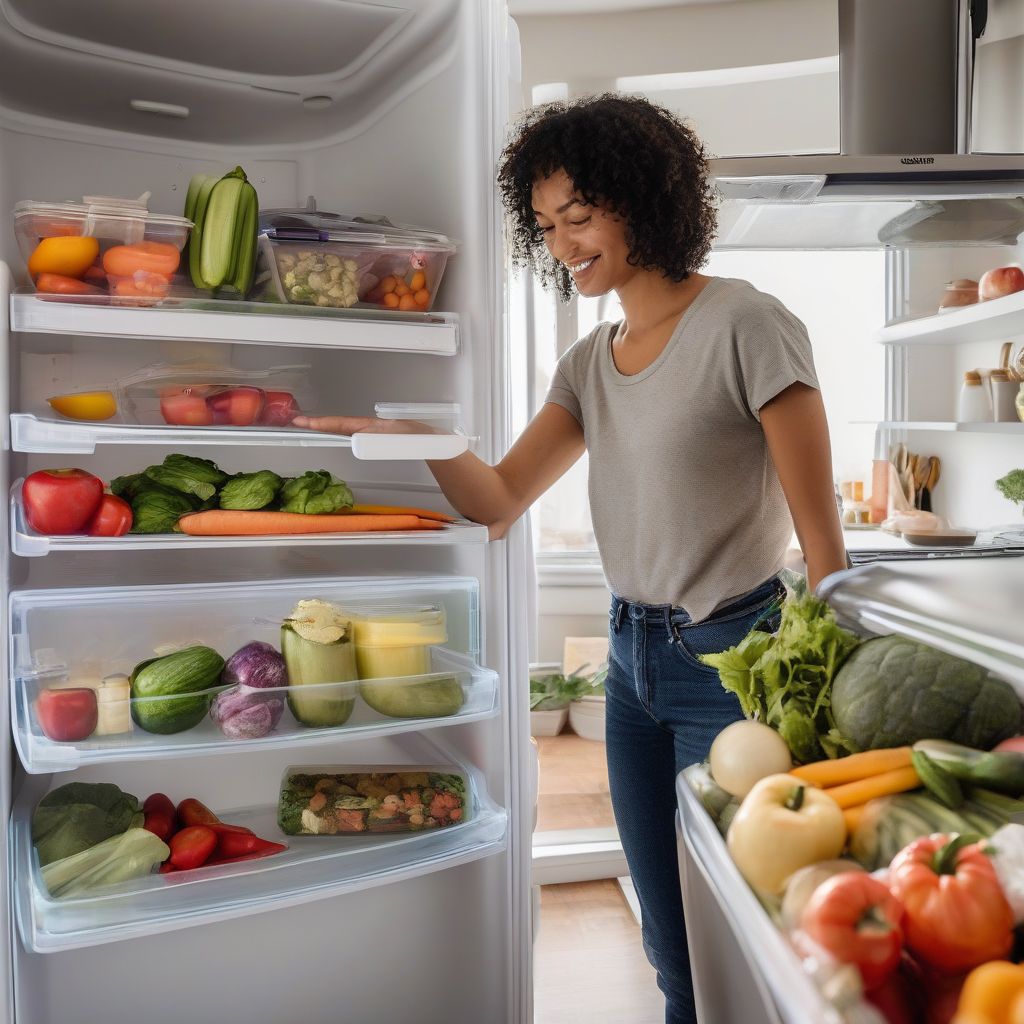We’ve all been there. You buy a fridge full of groceries with the best intentions, only to find wilted lettuce and fuzzy strawberries staring back at you a week later. It’s frustrating, wasteful, and frankly, it hits your wallet hard. But what if I told you that with a few simple strategies, you can drastically reduce food waste and make the most of every ingredient you buy?
As a nutritionist and meal prep coach, I’ve helped countless people transform their relationship with food, and a big part of that is learning how to shop smarter, store food correctly, and get creative in the kitchen. Let’s dive into how you can make your groceries last longer and reduce your environmental footprint in the process.
Understanding the Food Waste Problem
Before we jump into solutions, it’s essential to understand the scope of the problem. According to the USDA, food waste is estimated to be between 30-40% of the food supply in the United States. That’s a staggering amount of food going to landfills, not to mention the wasted resources used to grow, process, and transport it. By reducing food waste, you’re not just saving money; you’re making a real difference for the planet.
Practical Tips to Minimize Food Waste
Ready to transform your kitchen into a food-saving haven? Let’s get practical:
1. Plan Your Meals, Conquer Your Shopping List
The golden rule of food waste reduction? A well-thought-out grocery list. This is your secret weapon against impulse buys and forgotten produce. Before you hit the store:
- Check Your Inventory: Take stock of what’s already in your fridge, freezer, and pantry. This helps you avoid buying duplicates and sparks inspiration for using up items nearing their expiration dates.
- Plan Your Meals: Map out your meals for the week, incorporating ingredients you already have. Consider themes like “Meatless Monday” or “Taco Tuesday” to simplify your planning.
- Stick to Your List: Once you’re at the store, resist the temptation to deviate. Shopping with intention is key to minimizing unnecessary purchases.
2. Embrace the FIFO Method
First In, First Out (FIFO) isn’t just a fancy acronym; it’s a game-changer for your fridge organization. Here’s how to implement it:
- Rotate, Rotate, Rotate: When you unpack groceries, move older items to the front and place new ones in the back. This ensures you use up items before they expire.
- Clear Storage Containers: Invest in clear storage containers for leftovers, fruits, and vegetables. This way, you can easily see what needs to be used up and avoid the dreaded “out of sight, out of mind” syndrome.
3. Master the Art of Food Storage
Proper food storage is like giving your groceries a longer lease on life. A few simple adjustments can make a world of difference:
- Fruit and Veggie Savvy: Store fruits and vegetables separately. Fruits produce ethylene gas, which can cause veggies to ripen (and spoil) faster.
- Herbs Stay Fresh Longer: Trim the stems of fresh herbs and store them like flowers in a jar with water in the refrigerator.
- Freeze for Future Meals: Freezing is a fantastic way to preserve foods like bread, berries, and even cooked grains. Portion them out for easy use in future meals.
4. Get Creative with Leftovers
Leftovers are your secret weapon against food waste and offer endless possibilities for delicious, budget-friendly meals.
- Repurpose with Purpose: Transform roasted chicken into sandwiches, salads, or soups. Turn leftover rice into fried rice or use it as a base for a hearty grain bowl.
- Designate a Leftover Night: Once or twice a week, create meals around using up leftovers. It’s a fun way to get creative in the kitchen and reduce waste.
5. Compost Like a Pro
Even with the best efforts, there will be times when food scraps are inevitable. Composting is an eco-friendly solution that turns food waste into nutrient-rich soil for your garden.
- Start Simple: You don’t need a fancy setup. A simple bin in your backyard or even a countertop compost pail can do the trick.
- What to Compost: Fruit and vegetable scraps, coffee grounds, eggshells, and yard waste are all compostable. Avoid composting meat, dairy, or oily foods.
Maximizing Your Grocery Budget
Reducing food waste isn’t just about being environmentally conscious; it’s also a powerful way to stretch your grocery budget further.
- Save Money on Groceries: When you waste less food, you buy less food, which translates into significant savings over time.
- Reduce Impulse Purchases: Meal planning and sticking to your grocery list help you avoid those tempting but unnecessary additions to your cart.
- Enjoy the Satisfaction: There’s a sense of accomplishment that comes with using up all the food you buy.
 Reduce Food Waste
Reduce Food Waste
Conclusion
Reducing food waste and maximizing your groceries is a journey, not a destination. It’s about making small, sustainable changes in your daily routine that add up to a big impact. By implementing the tips we’ve discussed, you can enjoy fresher meals, save money, and contribute to a healthier planet. Start small, be patient with yourself, and celebrate your successes along the way!
What are your favorite strategies for reducing food waste in your kitchen? Share your tips and tricks in the comments below! And if you’re looking for more sustainable living inspiration, be sure to check out our articles on How to Make Your Own Zero-Waste Household Products and How to Practice Zero-Waste Grocery Shopping. Every step counts towards a more sustainable future!
[amazon bestseller=”Food Storage Containers”]
